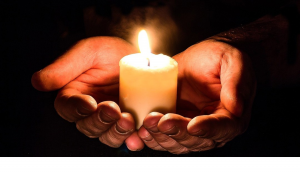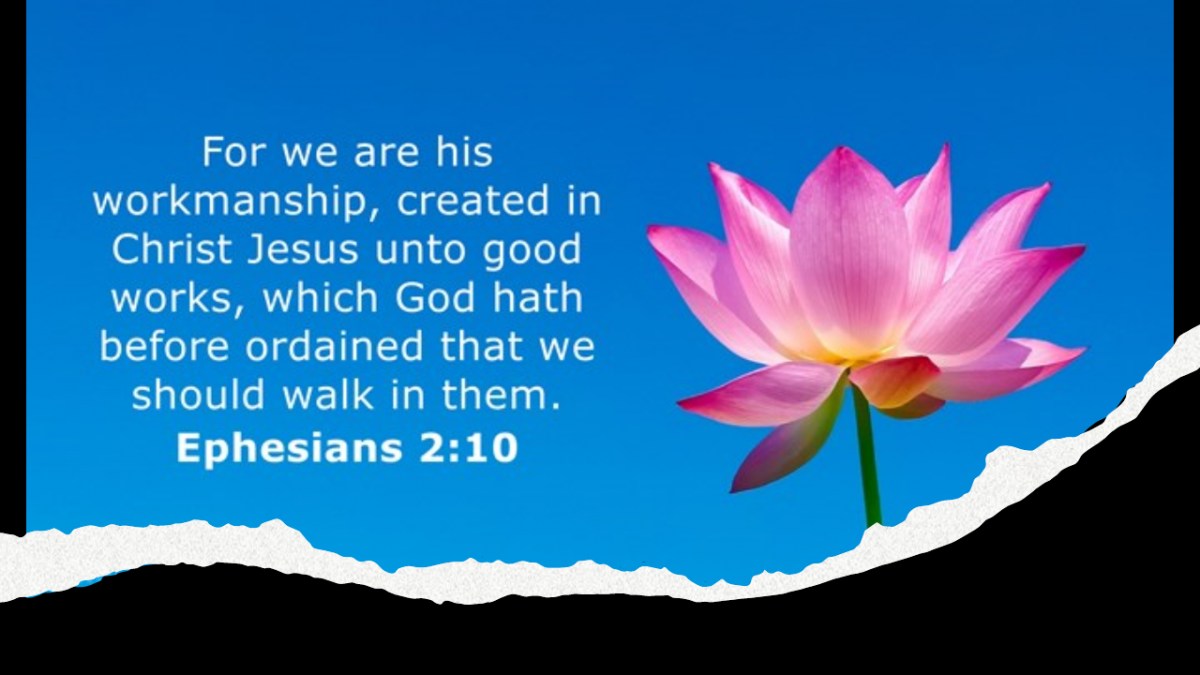

IT IS FINISHED
The Journey Continues
As is typical with many authors, once my book is published I rarely—other than for handing a copy to an interested party—pick it up again. I think that is an act of love.
When you write from that special place and spend time poring over, praying over, going over, and editing the material, by the time the final copy is ready for print, you kind of consider that particular product to be the finished and inspired product. To make any additional edits to the finished product (which would more than likely happen when you are one who strives for excellence), then it becomes an internal struggle because that desire to continue making additional edits to the finished product makes it, again, a work product. And the cycle continues. Believe me, the struggle is real.
I have decided to deviate from my past practice (or aversion) and in this case, read portions of Chapters 2 and 7 from my book as the last installment of this podcast series, which is based on my book. Maybe this will become a thing for me? I do not know. But I hope my listening audience will find the tease titillating, inspiring, and enjoyable.

And So, it Reads: Snippets from Book 4
“Unwrapped: Driving to Purpose – …Musings of a Church Lady During a Pandemic”
Chapter 2 – Part 1
One of Aesop’s Fables tells the story of a small crow that happened to fly over the garden of a king’s palatial palace and saw a flock of royal peacocks strutting around the yard in all their glory –with their beautiful plumage on full display. The crow immediately grew very envious of all that he saw, including how the peacocks looked and how they strutted.
The crow did not consider himself a handsome bird, nor elegant in his ways. He thought, though, that all he needed to do to make himself a fit for the society of the peacocks was to make himself look like one of them. So, he proceeded to pick up some feathers that the fine-looking birds had shed and attached them to his own black plumes.
With the beautiful, borrowed feathers attached, he flew back among the other crows and strutted around like a peacock, while shunning his own friends in the process. After showing off there, he flew back over the palace then down into the garden among the fancy birds. However, the peacocks saw through the decked-out crow’s disguise and became angry at him for cheating their look and demeanor (this is known as “misappropriation”) and they flew at him and began plucking away the borrowed feathers along with some of his own.
Saddened by what happened, the plucked-up crow returned to his former companions, but only to receive another unpleasant surprise: the other crows had not forgotten how lowly he treated them whenever he was dressed as a peacock. To punish him, they pecked and jeered at him and eventually drove him away.
The moral of the story is this: Borrowed feathers do not make fine birds.
The tensions of acting upon or being accused of assuming ownership of a thing that is not our own or being exposed for defrauding ourselves play out every day in the lives of people who would rather adopt the identity of others who appear to be more glamorous or glorious, more esteemed, more blessed, more visible, etc., rather than appreciate the uniqueness of their own strengths inside of their own giftedness or talents.
This not-too unfamiliar habit, however, is not a fatal flaw in the total human experiment—as it will not bring to any a mortal death—but if left unchecked, it can cripple personal, purposeful, and fruitful growth, especially for those in the body of faith.
When the crow watching from afar agonized over his perception of his own shortcomings because of being overtaken by what he longed for, which (in his mind) was being like the beautiful and doing beautiful things, he left his consciousness and entered an alternate state of being. He ceased to make sound judgments that would make him his own personal best. Instead, he engaged in a type of duplicitous acts that happens on all levels.
Chapter 2 – Part 2
The online Oxford Dictionary defines attitude as “a settled way of thinking or feeling about someone or something, typically one that is reflected in a person’s behavior.”[ii] In other words, our attitude reflects our state of mind in any given situation, and it can be detected in the expressions we make; in the tone of our voice; and in our overall body language. And, even if we can master the best poker face to disguise it, like the mood rings that changed colors whenever it sensed a change in our body’s biometric responses, and were popular in the 1970s and possibly beyond, our attitude is projected through our aura, which Oxford defines as “the distinctive atmosphere or quality that seems to surround and be generated by a person, thing or place.”[iii] In other words, even when we think we are not wearing our feelings, or thoughts for that matter, on our sleeves it is still detectable to other sensing, feeling, human beings. Whenever we try to mask-up and hide our thoughts and feelings, we end up like Dorothy in the movie “The Wizard of Oz”.[iv]
A creative spin on that story is that Dorothy ended up in the Land of Oz because she was frightened by the incoming tornado. She wanted to be strong for her auntie and her dog, Toto, so she internalized her fear and ended up in a weird fantasy land. She had some equally frightening experiences while there; however, she also learned a lot of valuable lessons. The culmination of the things she discovered is that if she learned to open-up about and express her fears and insecurities, then all she needed to do is relax, elevate her thoughts, and focus on being back in the safety of home where she would be able to handle anything that comes her way. She would then, once again, find herself back in Kansas, surrounded by the people who she loves and who loves and cares for her. Elevating her thoughts caused her to reach an altitude where the winds could set sail beneath her wings and lift her up. And, before she knew it, she was where she was supposed to be.
Altitude is defined plainly as the height measured up (or vertically) from a fixed reference point. Dorothy’s fixed reference point was grounded in her fear, uncertainty, insecurities, and feelings of hopelessness about being able to get what she wanted most. In letting her defenses down after going through, learning from, and overcoming various trials, she elevated her thoughts and gained the altitude to take her to where she wanted to be.
When it comes to our being let down by expectations, missed opportunities, and various trials in life that lead us to not exploring our own potential or not unwrapping our most valuable talents and spiritual gifts, that girl in Oz is we[v]. The only way out is for us to dig in and elevate our thoughts as written and wisely prescribed.
Chapter 7
Even as we gained some ground at this point and are almost on the other side of the pandemic in that it has been ravaging families, gutting businesses, and challenging churches, houses of worship, and people of faith, there is still wonder about what our new normal will be both in the near and long term. How are we being reshaped, if not by the hand, then by the permissive will of God?
Because of his providence, it is safe to believe that none of the events of late took God by surprise, nor any other event in the course of human civilization. Under his watchful eye, every event has evolved from another, and the same is with every person, place, or thing.
In each generation, He makes provisions for our survival and his own end-goal by equipping his creation physically, emotionally, and supernaturally with the tools to not only survive until their appointed time, but also to thrive in the abundance of his loving kindnesses[vi].
In return for all that he gives, he expects nothing more than a simple return on his investments as illustrated in the Parable of the Ten Talents
In the words of Warren W. Wiesbe, who is known as a prolific writer of Christian literature:
I will be satisfied to the extent that I see everything I have as a gift from God. Here is the truth: Everything you have—your money, talent, friendships, marriage, children, material possessions, health, home, bike, car, even the country you live in—is a gift from God that He had chosen out of His generous nature to give you.vii
Where our talents and spiritual gifts are concerned, We must be grateful for the ones that we can readily identify; discover those that we have not yet unwrapped; relinquish the ones that we acquire as a result of envy; and use every single one to the glory of God.
As the extraordinarily talented Chadwick Boseman [vii]said and as we should aspire to say at our own end, AND also do for each and every day of our life:
He said: “When I stand before God at the end of my life, I would hope that I would not have a single bit of talent left, and could say, [LORD] ‘I used everything You gave me.’”
Let us unwrap our gifts and also empty ourselves for his great kingdom.
The Beginning…
Appeal for Purpose
O’ God, we come to you in both humble faith and in prayer. We come and lay before your feet our every burden and care. Please, hear us as we pray, O’ God. Save us and strengthen us.
We know you are abiding in us each day. You are our Rock, our shelter and mighty fortress. You are our comfort in times of sorrow, our peace in times of pain and distress.
O’ God, we trust in you and stand firmly on your promises. We belong to you and are safe and secure in the palm of your hands. Please be our protection and when our spirit grows weary, let your word and spirit revive us again.
Lord, we trust you. We will call upon you daily for our portion. We trust you to hold us in your loving arms and keep us strong. And, Lord, while we are on this journey, please search us and know our hearts, test us, and know our anxious thoughts. See if there is any offensive way in us and lead us in the way everlasting.
Amen, and Amen.
Notes:
[i] Aesops Fables. (https://en.wikipedia.org/wiki/Aesop%27s_Fables)
[ii] https://www.oxfordlearnersdictionaries.com/definition/english/attitude
[iii] https://www.oxfordlearnersdictionaries.com/us/definition/american_english/aura
[iv] The Wizard of Oz Movie (https://en.wikipedia.org/wiki/The_Wizard_of_Oz_(1939_film))
[v] Adapted from Kamala Harris’s, “the little girl on the bus was me.” 2nd night of first Democratic debate, June 2019:
[vi] Isaiah 63:7
[vii] Chadwick Aaron Boseman (/ˈboʊzmən/;[5] November 29, 1976[a] – August 28, 2020) was an American actor and playwright.






